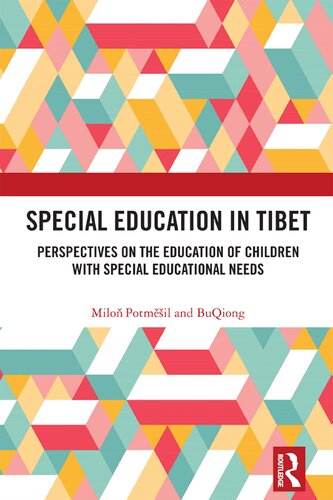

Most ebook files are in PDF format, so you can easily read them using various software such as Foxit Reader or directly on the Google Chrome browser.
Some ebook files are released by publishers in other formats such as .awz, .mobi, .epub, .fb2, etc. You may need to install specific software to read these formats on mobile/PC, such as Calibre.
Please read the tutorial at this link: https://ebookbell.com/faq
We offer FREE conversion to the popular formats you request; however, this may take some time. Therefore, right after payment, please email us, and we will try to provide the service as quickly as possible.
For some exceptional file formats or broken links (if any), please refrain from opening any disputes. Instead, email us first, and we will try to assist within a maximum of 6 hours.
EbookBell Team

4.8
94 reviewsThis book analyses the value orientation system of education in Tibet and examines the special education interventions aimed at children with disabilities in the region. The authors draw on their interviews with students, parents and teachers to shed light on how education is viewed by the general population in Tibet.
The book looks at themes such as traditional Tibetan education, the ways in which value orientation affects the development of disabled children, the role of special education interventions in building self-esteem and confidence and the importance of developing pedagogical care and special schools in Tibet. It also reviews China’s existing legal provisions and policies dedicated to persons with disabilities in comparison with Tibet. Finally, it emphasizes the role of practicing social acceptance for children with special educational needs and recommends developing special education interventions based on the cultural foundation and real social conditions of the ethnic group.
Based on in-depth qualitative and quantitative research, this book will be of interest to teachers, students and researchers of education, special education, curriculum studies, sociology, anthropology, disability studies, minority studies and cultural studies. It will also be useful for educationalists, special education institutions, policymakers, social activists and NGOs.